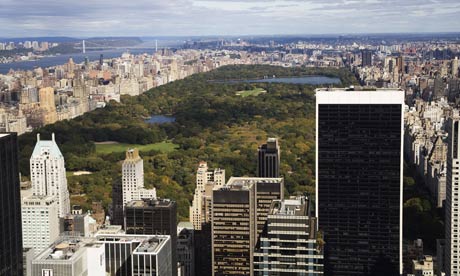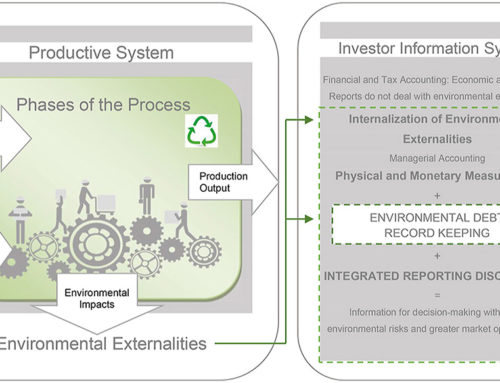First published in The Guardian, October 7th, 2013
Photo: Several high-volume roadways cut through Central Park. Photograph: Murdo Macleod/Murdo Macleod
Last week, on my way to Newark Airport from Manhattan, I looked across the highway to view the traffic entering New York’s most densely populated borough. The dedicated bus lane was moving steadily and swiftly toward the Lincoln Tunnel. The rest of the inbound highway was a parking lot, mostly filled with cars occupied by one person each. It was 7.45am and these cars would spend the next hour – or more – driving the last five miles into Manhattan. Meanwhile, the buses would get there in 15 minutes max.
Why do these people drive? I dunno.
On buses, trains and ferries, passengers can read, text, talk on the phone, rest, sleep, write, do a puzzle, check email and do anything else that’s not inconsiderate toward their neighbors; they have far more options than when they’re driving. And most modes of public transportation are faster, cheaper and easier than driving and parking in Manhattan.
So it confounds me why people choose to drive when they could take public transportation.
But fuggedaboutem. Let’s talk about the rest of us. This folly doesn’t just affect the drivers, but also hurts everyone else.
When private cars enter Manhattan by the hundreds of thousands every day, they create air pollution that adds huge extra healthcare costs for the city. New studies actually show that air pollution costs more than tobacco. Drivers also create unsafe streets when they ignore crosswalks, traffic signals and cellphone restrictions. And they make ungodly noise, which, for me, is almost unbearable. I am certain that there are huge uncounted costs in cellular stress and overall anxiety caused by the sensory assault of noisy cars.
This is how cars transgress our common senses. They make my city unpleasant, dirty and noisy while also costing many taxpayer dollars.
Private cars in New York City make no sense.
At the end of last month, Manhattan had a Gridlock Alert Day because the UN general assembly was in session. This means you can get stuck (even while walking) for 20 minutes when one of hundreds of global leaders whizzes by in motorcades. It’s a mess.
It was also a beautiful day and I took a walk along the Hudson in lovely Riverside Park. Bazillions of cars, almost all occupied by one person, entered the city on the West Side Highway. And my beautiful walk along the river was accompanied by the noise and pollution of these unwanted cars.
The same happens in Central Park. This great oasis in the city center is open to cars during morning and evening rush hours, heavily disrupting the park’s calming pleasures and speeding past everyone walking, biking, jogging or meandering through. This is crazy.
Don’t get me wrong: I get that occasional car trip is necessary. And taxis are needed to augment mass transit in any city. But the intractable problem is not occasional trips, but a bad habit – daily driving – that costs the rest of us a lot of money.
Would you rather pay for an upgraded, more convenient and frequent transit system or the health, welfare, safety and aesthetic costs of automobile-based travel? As taxpayers, we’re already paying, and we’re paying for the wrong thing.
As a frequent bus, ferry and subway rider, I have plenty of complaints about public transportation, namely that schedules almost never match actual arrival times. Real-time signs that show when the next bus, ferry or subway is really arriving would allow riders to make informed decisions about the best way to travel. We have the technology – it’s GPS – and it’s already ubiquitous and relatively cheap.
In a city that offers at least three routes to get most anywhere, this simple addition to the transit authority’s stations and mobile apps would change transit riders’ entire experience, enabling them to travel with confidence. And for lower-density cities, van pools – tricked out with smart apps and GPS – could provide a huge boon.
Here’s the choice: pay for the consequences of cars or the upgrade of mass transit. This is a macro policy question. But right now, no one really accounts for the true costs of the driving, so we can’t make an informed policy choice.
Those who continue to use cars when mass transit is viable and available should pay through the nose for befouling the city. Imagine what we could accomplish if NYC ticketed every driver who honked a horn for no reason and every driver who texted behind the wheel – and applied all of those funds to public transportation.
We have surrendered too many of our rights to the automobile, allowing it to impact our air, land and water in inacceptable ways. We allow extraordinary vehicle noise throughout the city and have given away the ability to walk in a vibrant urban environment with pleasure – even in our parks.
I don’t want to pay for the harm these drivers are causing. I want my common senses back.





